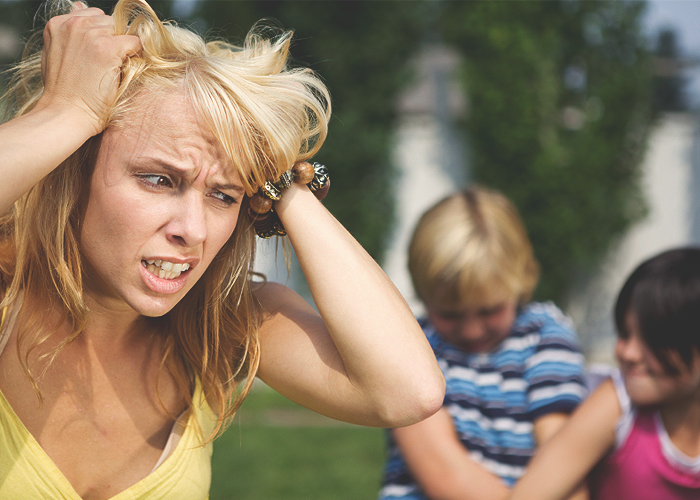Avoid these 7 mistakes to raise a great kid.
In recent years, with the popularity of the self-esteem movement in child-rearing, some destructive parental behaviors have become commonplace.
While they are well-intentioned, and often make life easier for everyone in the short term, they definitely do more damage in the long run.
As a parent, it’s not easy to make the hard choices and uphold high standards. Today, we are stressed, busy, overwhelmed and so are our kids. There may be guilt involved, from working parents who feel they can’t give their kids the time they need. And, kids are Ninja masters at manipulation. It’s their job.
Here are 7 destructive parental behaviors that you can avoid or stop doing. All it takes is awareness of the things that trigger these behaviors, and a conscious choice to take actions that have better results, with an eye on long-term benefits as opposed to immediate gratification.
1. Quick to the rescue
What parent hasn’t experienced the tearful, panicked “I forgot to do my project and it’s due tomorrow” pleas from their children? We want to help our kids succeed – i.e. get good grades – so we’re too quick to swoop in and “assist” instead of letting them deal with the consequences of their choices. Ultimately, kids will not learn the necessary life skills like time management, self-motivation and responsibility, if parents take care of their problems for them. If a child is used to someone rescuing them, why would they even bother trying? The reality of the world is, every action has consequences. Let your kids fail and then encourage them to evaluate what they could have done differently to avoid repeating the results next time. Failure is a much more potent teacher than success! That’s not to say you should not help your child when they truly need help – just don’t put on your superman cape and rescue them when they are dealing with the consequences of their own choices and (in)actions.
2. Unwarranted praise and prizes.
How many times have you come across a situation where ALL the kids in a competition receive a prize, just for showing up? Or all the kids at a birthday receive presents (goody bags)… just for showing up? Life isn’t like that. Not everybody is a winner. If we praise mediocre efforts, we dilute the impact of true praise for the most genuine efforts. Just because a child does something doesn’t mean they did it to the best of their abilities. Never praise them for showing up. Praise the effort if it was wholehearted but if it wasn’t, don’t give them a false sense of self-esteem. Self-esteem is EARNED through effort and the inner positive feelings of accomplishment. A child knows perfectly well when they don’t give it their all, and if you praise that “effort” then they will quickly learn to expect praise all the time, no matter how little they try.
3. We take away all risk.
Let’s face it: life is dangerous, but if we cushion and protect our children from every scrape and bump, from every failure and disappointment, they will never be prepared for the reality of life. Yes, “safety first” but some risk-taking is necessary so kids learn what they can do, what they have to try harder to do, and what they truly can’t do. They NEED to fall. To fail. To have their hearts broken. To be rejected. To be ignored. Not all the time, of course, but if they never fail and they don’t experience the realities of interpersonal relationships, they will grow up timid and afraid to even think about going for their big dreams. Any new venture – business.
4. We don’t show our human side.
We’ve all screwed up, and some parents feel awkward divulging their own mistakes. Actually it’s OKAY to let your kids know that you’re not perfect – especially when they themselves are going through similar challenges. The trick is to use your relevant mistakes as a lesson! Share how you felt, what you did, what the consequences were, and how you dealt with the situation afterward. Take the harder, higher road, for long-term happiness!
5. We let guilt drive lax parenting.
You don’t have to be your kids’ best friend. They don’t have to be happy all the time. They don’t have to be protected from failure or disappointment. But many parents, especially those who work outside the home, feel guilty about how little time they spend with their kids, and so they spoil the kids. And boy, do the kids love that – and learn that “no” doesn’t mean no, that if they whine or harangue you long enough they’ll get what they want, that if one sibling gets something then the other must get something too… don’t fall into this trap. Say no, make kids work for what they want, let them learn to cope with disappointment and “unfairness,” don’t reward what is EXPECTED of them – only what goes above and beyond – and teach them by standing up for yourself and your values that “no” doesn’t mean you don’t love them. It is NOT easy but in the long run you’ll be glad you stuck to your guns and didn’t let the kids walk all over you just to keep the peace!
6. We talk the talk but don’t walk the walk.
If you say “don’t hit your brother” and then turn around and smack the dog for pooping on the carpet… just remember, your actions speak louder than words. Kids are little mimics and they pick up very, very quickly the kinds of behaviors that you unconsciously exhibit (like yelling at other drivers in traffic). If you cut corners, you can be sure they will too. If you fail to express sincere thanks for a gift, your kids will too. This is a golden opportunity to become more self-aware, and lead by example.
These are just a few parenting mistakes that can easily be avoided with some self-awareness.
Better and Better,
Laura Silva Quesada
and the Team



 Laura Silva Quesada, daughter of Jose Silva – founder of the original Silva Mind Control Method, she was one of the primary research subjects, which gave her extensive personal experience and insight into the creation, and use of intuitive and life changing techniques.
Laura Silva Quesada, daughter of Jose Silva – founder of the original Silva Mind Control Method, she was one of the primary research subjects, which gave her extensive personal experience and insight into the creation, and use of intuitive and life changing techniques.


